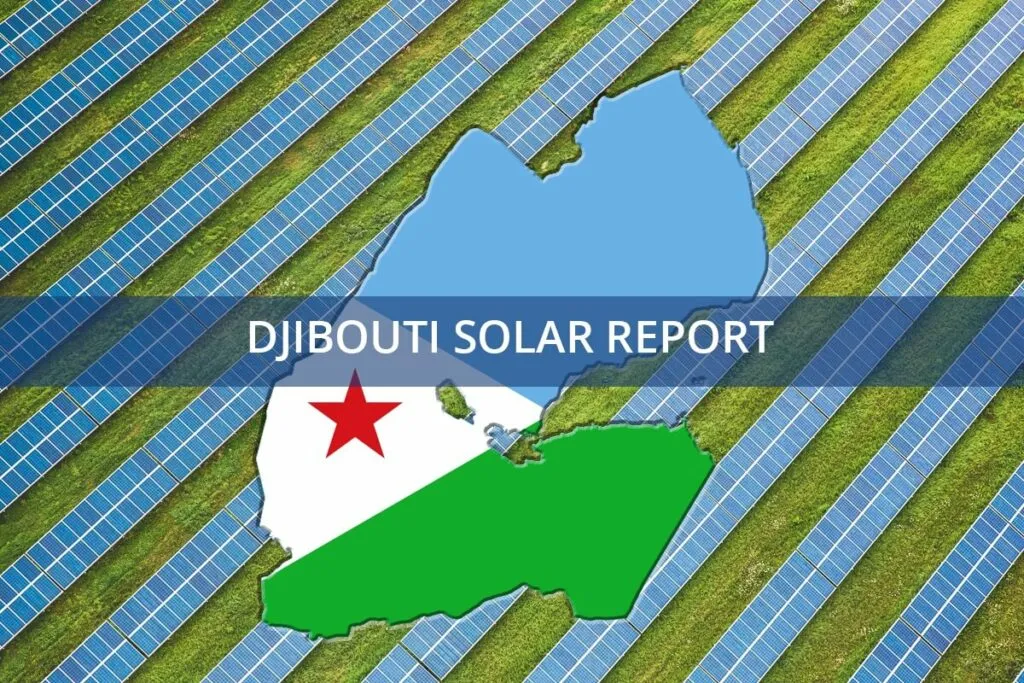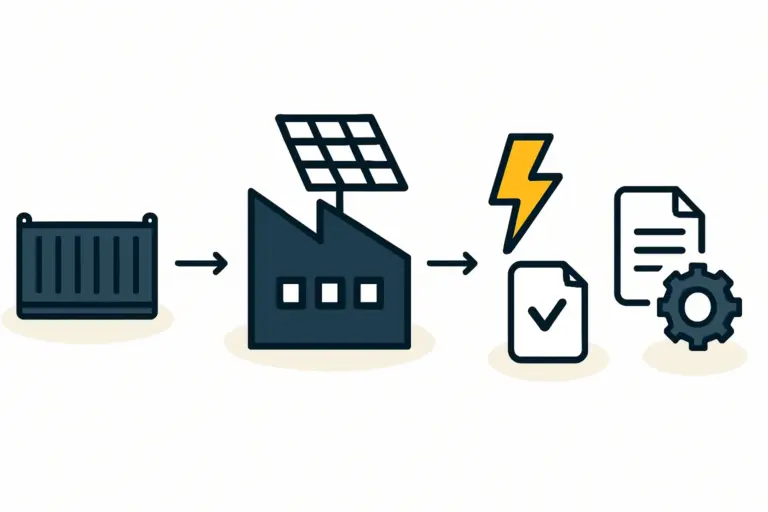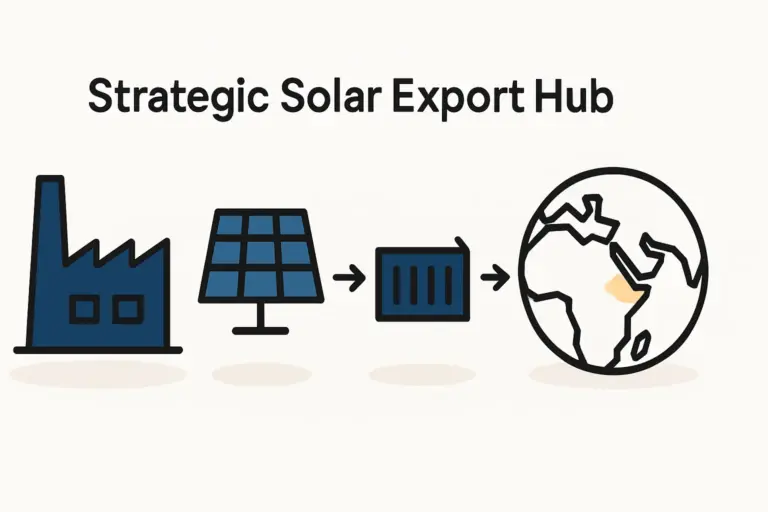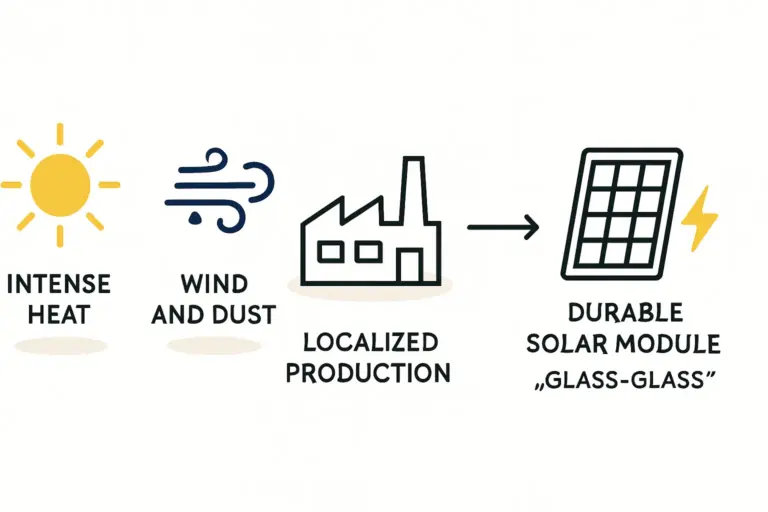With its high solar irradiation, Djibouti offers a compelling opportunity for investors in the photovoltaic sector. The success of a new solar module assembly plant, however, will depend less on technology and capital than on its most critical asset: its people.
For an entrepreneur entering this market, the central challenge lies in transforming a willing but largely inexperienced local workforce into a highly skilled, efficient production team. This isn’t an obstacle so much as a strategic process. With a structured approach to recruitment, training, and development, a new manufacturing facility can become a cornerstone of local employment and a model of operational excellence—aligning perfectly with the nation’s Vision Djibouti 2035 goals for industrialization.
Understanding Djibouti’s Labor Landscape: Challenges and Opportunities
An effective workforce strategy begins with a clear understanding of the local context. Djibouti’s labor market presents several key characteristics that will directly impact recruitment and training for a new solar factory.

According to national data, unemployment is a significant challenge, particularly among young people, with some estimates reaching over 80% for this demographic. While this points to a lack of formal work experience, it also represents a substantial opportunity: a large, motivated pool of candidates eager for stable, long-term employment.
Key considerations for a business plan include:
-
A Youthful Population: With over 60% of the population under 25, a solar panel factory can build its workforce from the ground up, instilling a culture of quality and precision from day one.
-
Educational Foundation: While higher education enrollment is growing, the primary and secondary systems provide a foundation of literacy. The main gap lies in technical skills, as formal Technical and Vocational Education and Training (TVET) is not yet widespread, making a factory’s in-house training program essential.
-
Government Alignment: The government’s National Development Plan actively encourages foreign investment in strategic sectors like renewable energy. A project that emphasizes local job creation and skills development will likely be viewed favorably and may align with programs supported by institutions like the Centre de Formation Professionnelle (CFP).
A Phased Approach to Recruitment and Hiring
A methodical recruitment process is key to identifying individuals with the right aptitude and attitude, even if they lack direct manufacturing experience.
Phase 1: Sourcing and Community Engagement
Instead of relying solely on traditional job postings, a more effective strategy involves proactive community engagement. Building relationships with local leaders and educational institutions like the Lycée Industriel et Commercial de Djibouti can create a pipeline of suitable candidates. This approach demonstrates a commitment to the community and helps build a positive local reputation.
Phase 2: Selection Criteria Focused on Aptitude
For entry-level assembly roles, prior experience is less critical than innate abilities. The selection process should focus on assessing:
-
Manual Dexterity: Simple tests can evaluate a candidate’s ability to handle delicate components like solar cells.
-
Attention to Detail: The ability to follow precise instructions is paramount for quality control.
-
Basic Numeracy and Literacy: Essential for understanding work orders, measurements, and safety protocols.
-
Teamwork and Attitude: A positive, collaborative mindset is foundational to a productive factory floor.
Phase 3: Navigating the Regulatory Framework
Compliance with Djibouti’s Labor Code is non-negotiable. This means establishing formal employment contracts that clearly outline working hours, remuneration, and responsibilities. Adhering to workplace health and safety standards is just as vital, not only for legal compliance but for creating a safe, productive environment. Consulting with local legal experts is critical to ensure all hiring and employment practices are fully compliant.
Designing an Effective, Task-Oriented Training Program
A well-designed training program is the bridge between a recruit’s potential and their performance on the factory floor. The program should be modular, hands-on, and focused on building skills incrementally.
Foundational Module: Factory Basics and Safety
All new hires, regardless of their role, should begin with a comprehensive induction. This covers company culture, workflow, and, most importantly, rigorous safety protocols. A strong safety culture prevents accidents and protects both the workforce and the investment.
Core Technical Skills for Assembly
The bulk of the training will focus on specific tasks within the solar module manufacturing process. This includes:
-
Cell Handling and Stringing: Training on how to handle fragile solar cells and operate stringer machines to connect them into series.
-
Layup and Bussing: Instruction on the precise layering of materials (glass, EVA, cells, backsheet) before lamination.
-
Lamination and Framing: Operating the laminator and framing stations, which are critical steps for module durability.
-
Junction Box Installation and Testing: The final assembly steps, followed by training on how to use simulators and electroluminescence (EL) testers to ensure quality.
This stage of training is where a partner providing a turnkey solar production line proves invaluable. J.v.G. Technology GmbH, for instance, has decades of experience not only setting up the machinery but also developing and delivering the hands-on training programs required to operate it effectively.

The Crucial Role of Expatriate Experts and Knowledge Transfer
In the initial phase, typically the first one to two years, it is standard practice to employ a small team of expatriate experts. This team may include a production manager, a maintenance engineer, and a quality control supervisor.
Their primary objective must extend beyond managing daily operations; they are also trainers and mentors. A key performance indicator for this team should be its success in identifying and developing local talent to take over these roles. This planned knowledge transfer ensures the long-term sustainability of the operation and demonstrates a genuine commitment to local capacity building. Hiring a factory manager with this mentorship mindset is a critical early decision.
Frequently Asked Questions (FAQ)
What are the primary languages to consider for training materials?
Djibouti’s official languages are French and Arabic. All training manuals, safety signs, and instructional materials should be provided in at least French, and ideally in both languages, to ensure clear and unambiguous communication. On-the-floor trainers should also be proficient in French.
How long does it typically take to train an entry-level assembly worker?
Based on experience from J.v.G. turnkey projects, a focused, hands-on training program can bring a new worker to proficiency for a specific station (e.g., stringing, layup) within four to eight weeks. Cross-training on multiple stations can take several additional months.
What is the minimum educational requirement for recruits?
For assembly line positions, a formal degree is unnecessary. The focus should be on a completed primary or secondary education, ensuring basic literacy and numeracy. Aptitude, a willingness to learn, and a strong work ethic are far more important indicators of success.
Are there government incentives for hiring and training local staff?
Investors should investigate potential incentives offered by the Djiboutian government for projects that create significant local employment and contribute to skills development. This can be explored through Djibouti’s National Investment Promotion Agency (NIPA) as part of the initial due diligence and planning phase.
Conclusion: Building a Sustainable Asset
Developing a local workforce for a solar panel factory in Djibouti is a strategic and highly rewarding investment. It transforms the challenge of a low-skill environment into an advantage, creating a loyal, capable, and cost-effective team tailored to the specific needs of the operation.
By understanding the local context, implementing a structured recruitment and training plan, and focusing on long-term knowledge transfer, an investor can build more than just a factory. They can establish a sustainable local enterprise that delivers both financial returns and lasting economic value to the community.







